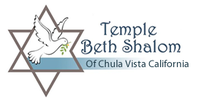Printed in Kehilla Magazine
Hanukkah celebrates the first triumph for religious freedom in the ancient history of late antiquity. Although the holiday celebrates the military victory of the Maccabees back in the latter half of the second century B.C.E., rabbinic tradition redefined its significance by stressing the spiritual dimension of the revolt. Military battles may come and go, but it is the triumph of the human spirit that matters most when it comes to the spiritual evolution of humankind. The rabbis, by and large, viewed the militaristic tendencies of the State with grave suspicion. Hence, Hanukkah had to signify something other than just military prowess.
The prophetic verse from the Bible underscores this thought—“Not by might, nor by power, but by my spirit, says the Lord of hosts” (Zechariah 4:6). When the forces of war and impatience demand a punishing response, it is all the more important that sober minds demand a calmer and more thoughtful approach. The Chinese military general and philosopher Sun Tzu (544-496 B.C.E.) in his famous book, “The Art of War,” writes,
“The supreme art of war is to subdue the enemy without fighting.”
The metaphor of light captures the essence of Zechariah’s and Sun Tzu’s related thoughts. Since ancient times, light has long been the symbol of life, happiness, prosperity, a realm of perfect being. Light’s appearance toward the end of the night is breathtaking; we never cease to be in awe of light’s gradual ascendance, peacefully dispelling darkness with its illuminating power. One little candle gently creates much light without fanfare or self-righteous arrogance. Each Hanukah candle teaches us to walk in the spirit of peacefulness. By creating light, we all help build an earthly home of God’s reality that celebrates and enhances life in all of its splendorous forms.
The relevance of Hanukkah is especially relevant for today’s challenges we all face. Hanukkah reminds us that the real battlefields are the hearts and souls of people. No military force—regardless of its size or strength—can conquer the spirit. This thought offers a practical prescription for our leaders to consider before sending our young people to fight in yet another unpredictable war. In our battle against religious terrorism, it is important to remember that wars must be fought not only with weapons, but with ideas. Physically destroying an enemy may have negligible value, but fighting backward ideas with progressive ideas that champion the dignity of all people will ultimately yield a victory everyone can savor—and with much less bloodshed.
Lastly, the routine use of religious coercion by the religious parties in Israel continues to exacerbate the tensions between the Haredi and non-Haredi denominations of Israel. This past year, not even a Modern Orthodox rabbi could perform a marriage for a couple without Haredi rabbinical approval. The fight for gender rights, equal rights for Modern Orthodox, Conservative, Reform and Reconstructionist Jews is a continuous clash of worldviews. Yet, the olive never yields its oil without a struggle, and by the same token all of us who wish to preserve the democratic makeup of Israel must do everything to prevent it from becoming a theocracy. Democratic and pluralistic values are not antithetical to Judaism. This is a battle we have yet to win…
The holiday of Hanukkah offers a simple reminder that the forces of light and enlightenment can eventually triumph provided we start fighting on a more conceptual and spiritual plane.
There is a lovely story about a king who had three sons. Before he was going to turn over the leadership of his empire over, he wanted to see which son was truly wise to manage his kingdom. He put this problem before them, “Only one of you is going to be qualified to be king. There are three identical rooms on the first floor of this palace. I want each of you to fill a room so that every nook and corner is filled. You may use any commodity you like, but the room must be filled by midnight.” One son tried using straw, which he thought would pack very nicely. Another son thought sand could fill the room completely. Both sons failed to finish before the midnight hour. The third son waited until about five minutes before midnight, and he called his father to step into the room.
He took out a candle and filled the entire room with its radiant light. His father was pleased and said, “You, my wise son, have shown yourself worthy to inherit the throne of my kingdom.”
The parable serves as a reminder that sometimes the most thoughtful response can achieve infinitely more than a thoughtless approach to life’s many social and international political problems.
Rabbi Dr. Michael Leo Samuel

 RSS Feed
RSS Feed
